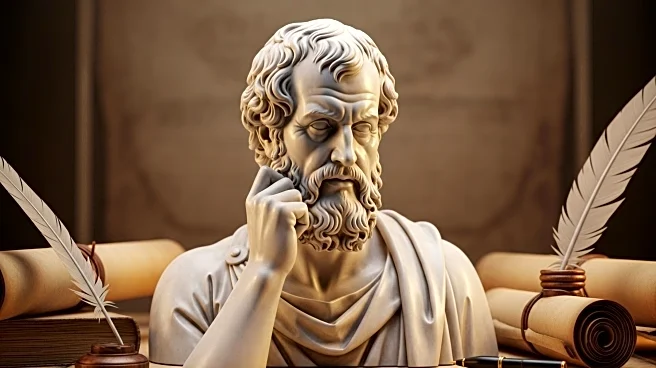Aristotle's portrayal in media and literature reflects his enduring influence and significance in Western thought. His works have been referenced and studied by scholars and thinkers across various fields, highlighting his impact on intellectual traditions.
Media Portrayals
Aristotle has been portrayed in various media, including literature, film, and academic studies. His role as a foundational figure in philosophy and science is often emphasized, showcasing his contributions to intellectual discourse and the development of Western thought.
Notable Works
Aristotle's works, such as "Nicomachean Ethics" and "Politics," have been studied and referenced in numerous academic and literary contexts. These works continue to be central to philosophical and ethical discussions, highlighting the enduring relevance of his ideas.
Reception
Aristotle's works have been received with great interest and respect, influencing scholars and thinkers across various fields. His systematic approach to philosophy and science has set the stage for future intellectual developments, establishing him as a foundational figure in Western thought.
Accuracy vs. Source Facts
While Aristotle's portrayal in media often emphasizes his contributions to philosophy and science, it is important to consider the accuracy of these portrayals in relation to source facts. His systematic approach and empirical methods provide valuable insights into his intellectual legacy, highlighting the importance of accurate representation in media.

 Discover Daily
Discover Daily 






